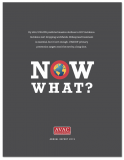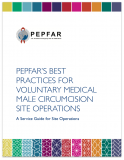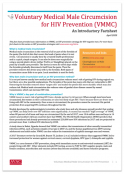- About UsOur Story, Our Team & Support Information
- What We DoAdvocacy to Achieve the End of AIDS
- Advance HIV/SRH Integration
- Advocate for Access to High-Impact Prevention
- Improve Research Conduct
- Product Innovation & Availability
- Promote Effective HIV Prevention Policy
- Strengthen Global Advocacy Networks
- Track and Translate the Field
- Our FocusInterventions to End the Epidemic
- ResourcesPublications, Infographics, Events & More
- MediaInformation & Resources for the Press
- Our BlogPrevention News & Perspective
A simple approach with life-long benefits could prevent millions of HIV infections. It’s time to realize that potential.
Voluntary medical male circumcision (VMMC) is one of the most powerful and cost-effective HIV prevention tools at hand. Studies from 2006 showed that it reduces a man’s risk of acquiring HIV from a female partner by up to 60 percent, increasing to around 75 percent over time.
VMMC is being rolled out for HIV prevention in 14 sub-Saharan African countries with high HIV prevalence and low levels of adult male circumcision. The goal: achieve 80 percent coverage among men in these countries in order to avert 3.4 million new HIV infections and save US$16.6 billion in future healthcare costs. After years of slow progress, scale-up of VMMC is accelerating. Sustained investment and close monitoring are needed to keep things on track.
Newly available non-surgical circumcision devices could also play a role, offering an alternative to sutures and surgery that some men may prefer. Countries need to decide if and how to introduce devices, while making plans, budgets and communications campaigns to keep scale-up on track. AVAC and others are advocating for action to make sure these steps happen.
What We're Reading
Featured Resources


